Levent Kenez/Stockholm
Fahrettin Altun, the Turkish presidency’s director of communications, frequently called Turkish President Recep Tayyip Erdoğan’s propaganda chief by the opposition, on Thursday said, “We will not allow fifth column activities under new guises,” regarding news reports about some media outlets in Turkey that are funded by a foreign foundation.
Altun added that Turkey clearly needed regulation of media outlets that operate with funds provided by foreign states or organizations to “protect our people’s right to accurate information,” which many critics agree is a new attempt at censorship.
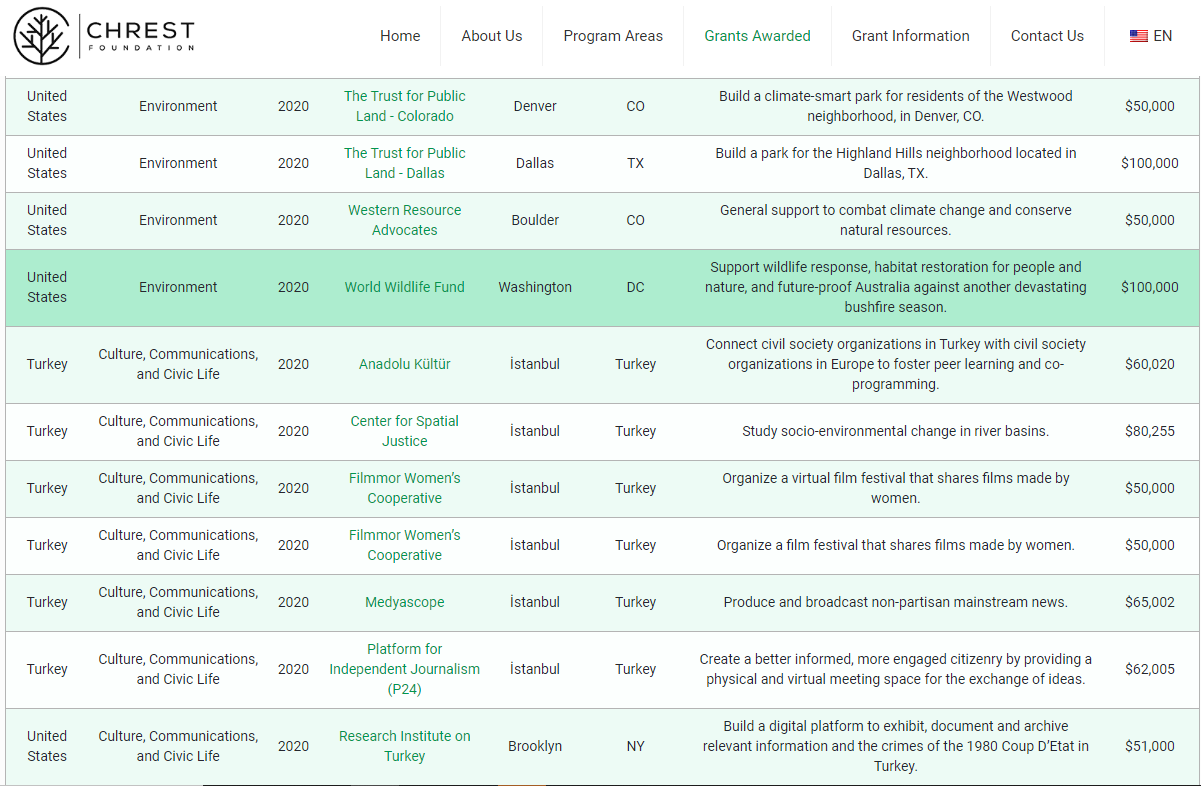

A heated debate started this week after it was revealed that a number of media outlets including the popular Medyascope news website, owned by journalist Ruşen Çakır, was funded by the American Chrest Foundation. Çakır explained that this was not new and that they have been announcing this support transparently on their website for almost five years. Pro-government, leftist and socialist circles in particular described a leftist journalist’s acceptance of funding from an American foundation as hypocrisy, and moreover, cooperation with imperialism.
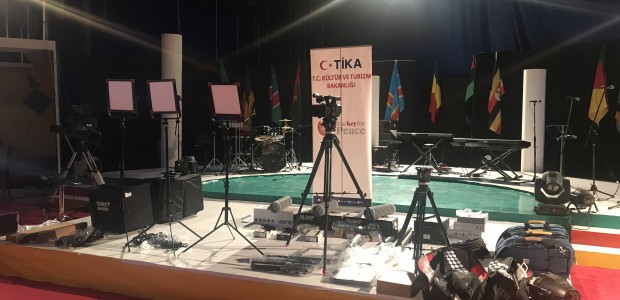
Actually, it is no secret why a fact that has been known for five years has now become news. In one of Çakır’s latest YouTube videos he drew attention to the fact that throughout the Republican era, secular governments never carried out a persecution of any religious group to the extent the Erdoğan government has against the Gülen movement, a group critical of the government inspired by Muslim scholar Fethullah Gülen. The remarks of Çakır, who is ironically more critical of the Gülen movement than the government and supported the witch hunt against it, was described as a disclosure by Gülen followers. Immediately after the release of Çakır’s video, ODA TV, a media outlet that supports the government and promotes the idea of Turkey’s cooperation with Russia, China and Iran, circulated the story about the funding of Çakır’s Medyascope in response to his statements about the Gülen community.
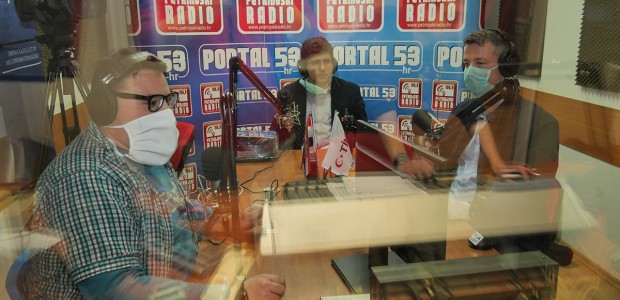
According to many critical journalists, the government plans to impose new restrictions on Internet media, something it has long intended, by using this debate as a pretext. However, a Nordic Monitor study shows that the Turkish government itself also makes similar donations to many media outlets abroad. The state-run Turkish Cooperation and Development Agency (TİKA) has provided expensive technical equipment to radio and television stations and newspapers in Bosnia, Tajikistan, Serbia, Cameroon, Afghanistan, Mozambique, Libya, Tunisia, Crimea, Uganda, Tanzania, Ethiopia, Kenya, Senegal, Cyprus and Croatia.
Aid to media in Mozambique, Romania and Senegal as it appeared in TIKA’s 2020 annual report: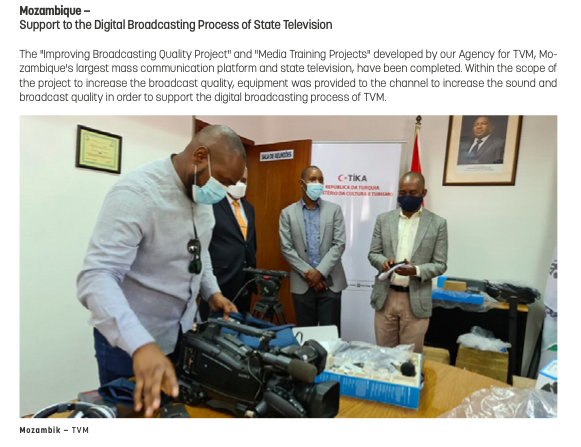
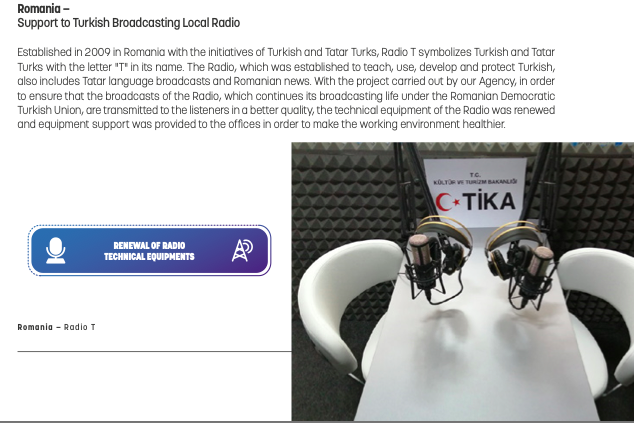
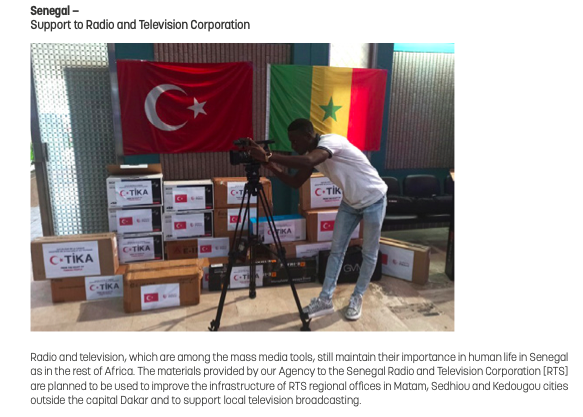
TİKA also cooperates with the state-run Anadolu news agency (AA) in organizing free seminars and lectures for foreign correspondents. According to TIKA’s official records, nearly 600 reporters have participated in TIKA’s activities so far. The seminars were held in Turkey before the pandemic and the travel expenses of the guests were covered by TIKA. Guest reporters are educated mainly in energy reporting, war correspondence, diplomacy and journalism techniques.
The region where Turkey invests the most in media is the Balkans. The Stav magazine and the Faktor news website are funded by Turkey. The state-run Ziraat Bank and Turkish Airlines also provide financial support to media organizations by means of advertising. A media owner in Bosnia previously told Nordic Monitor that “since Turkish state-owned and pro-Erdoğan companies operating in Bosnia are top advertisers in the small media market, criticism against Turkey is not openly voiced. However, we are aware that Erdoğan’s Turkey is not a country we envy. Bosnia’s future lies in the EU, and a close relationship with Erdoğan is an obstacle to that.”
Stav magazine and the Faktor news website are funded by Turkey:
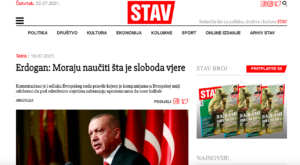
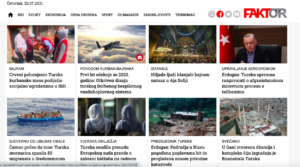
The Erdoğan government also uses foreign media against countries that it has problems with. For instance, TV channels belonging to the Muslim Brotherhood, a political organization that opposes Egyptian President Abdel Fattah al-Sisi, broadcast comfortably from Turkey. Erdoğan has provided a safe haven for persecuted journalists of the Brotherhood in Turkey since the 2013 overthrow of Egyptian President Mohamed Morsi, who was backed by Turkey. In March Turkish authorities asked three Istanbul-based Egyptian opposition TV channels to soften their critical political coverage of Egypt’s government as Turkey was seeking to repair frayed ties with Cairo, officials at one of the channels confirmed. These TV channels indirectly announced that they would comply with this decision, albeit reluctantly, a clear indication that they are under Turkey’s control.
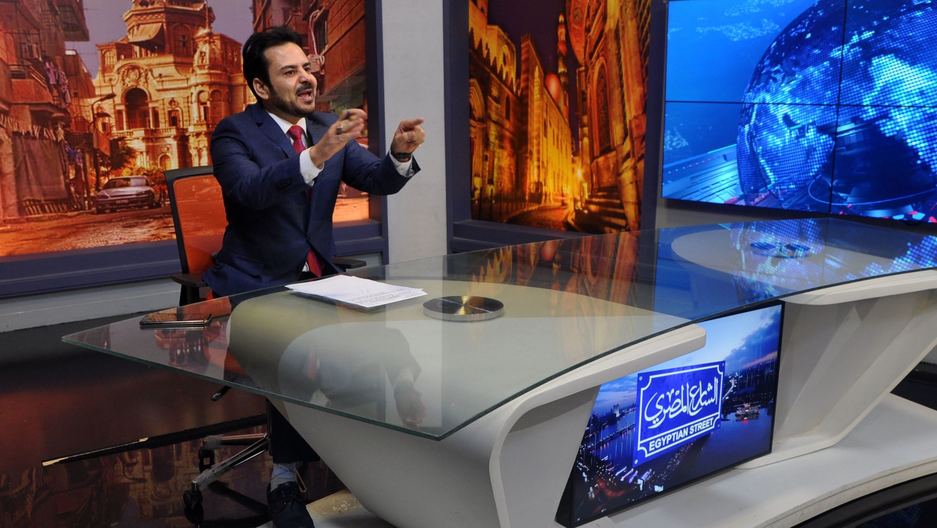
Many foreign broadcasting organizations are still operating in Turkey. Turkish affiliation with Time Warner’s CNN, Rupert Murdoch’s Fox and Pay TV platform Digitürk owned by the Qataris are among leading ones. Azerbaijan’s state-run oil company Socar also owns media outlets in Turkey. German Deutsche Welle, US Voice of America and the EU’s Euronews reach a significant number of audiences on YouTube, which makes the government uncomfortable.












